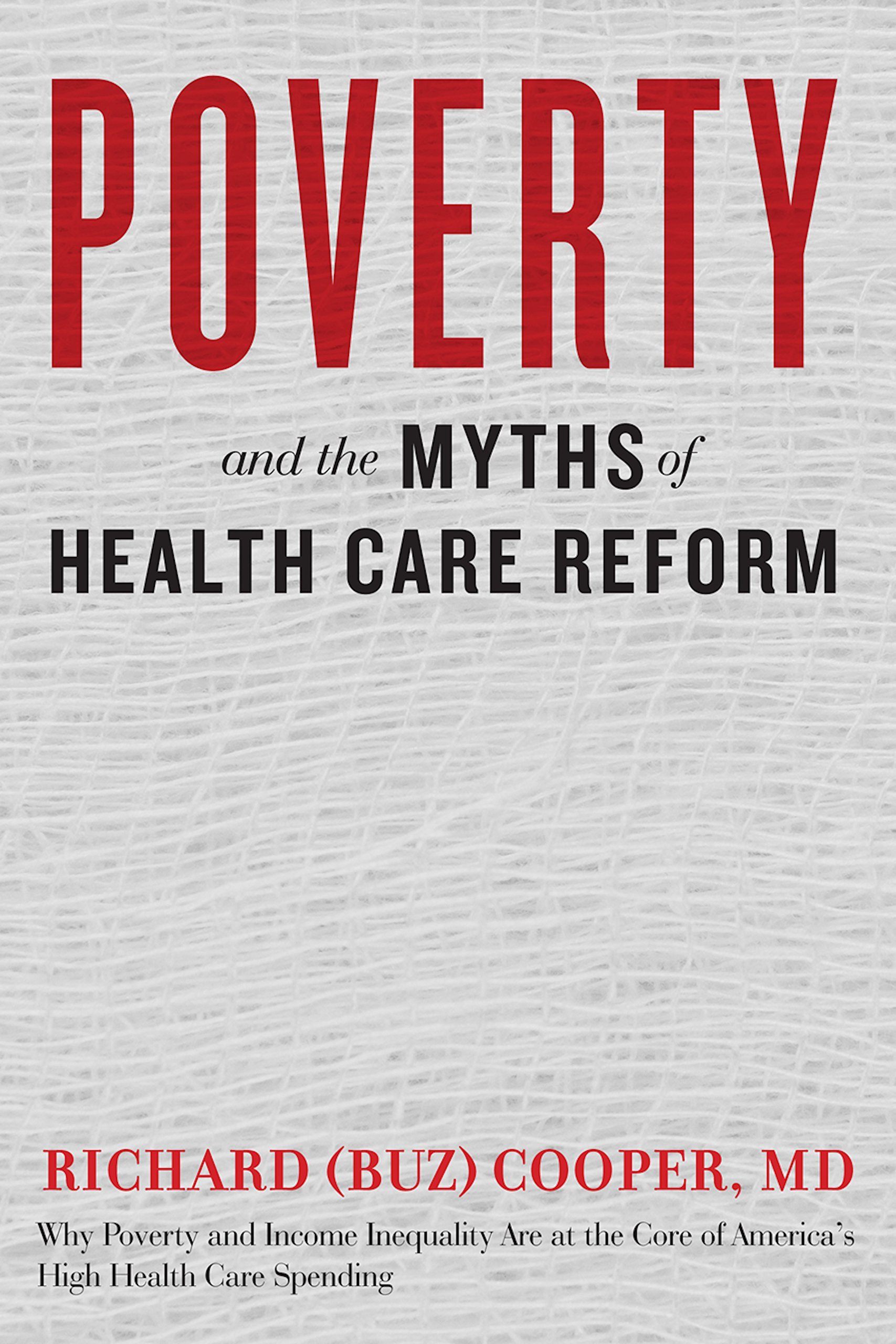
Poverty and the Myths of Health Care Reform
“Cultural narratives create belief systems that drive policy, not only national legislative and regulatory policies but local government policies and the personal adopted by business and individuals. Health care is ensnared in the narrative of waste and inefficiency, while the narrative of poverty, income inequality, and healthcare spending languishes. This latter narrative should by now be clear and unambiguous. It is time for creative minds to embrace it and search for realistic solutions.”
-Richard (Buz) Cooper, MD
A Review:
Dr. Cooper goes against popular opinion within the healthcare and gubernatorial world. He states, and backs up with ample evidence, that poverty undermines the healthcare industry. Many policymakers, researchers, and doctors go to great lengths to find explanations for why our healthcare system is struggling besides examining the role of poverty. Rather, many people created policy and based research on a few well-known studies and metrics that have skewed results. An example is the Dartmouth Atlas which uses misleading grouping methods to describe healthcare effectiveness costs and efficacy. As is mentioned in the book, people often allude to the detrimental effects poverty has on our society. Using the Dartmouth Atlas, these powerful people often renege on their words and create misdirected solutions for problems encountered in the healthcare system. This book serves as an important study for analyzing how people ignore poverty in the quest to alleviate the problems in a perfectly broken system. They often attack symptoms of poverty without combating the unequal pay grades, outdated classifications of poverty, and inability to access resources meant to ‘save’ one from poverty. Dr. Cooper dissects the policy, decisions, and mentalities that lead to this through the scope of healthcare. Much of the book is a rebuttal and a product of frustration aimed at picking apart the misleading studies. However, Dr. Cooper does an excellent job of offsetting the documentation of negative actions with highlights of positive healthcare practices and policies for impoverished individuals inside and outside the United States. He uses these reflections to lay out instructions to combat the healthcare crisis in the final chapters. The dense book is written for those interested in understanding where healthcare leaders went wrong, what has historically made a significant positive difference, and solutions we can make going forward. The main point of the book is listed directly in the title. I recommend this for those interested in healthcare, poverty, and governance, but it is not a necessary read. The beauty of this book is in the evidence the argument is built on, not the writing itself.

